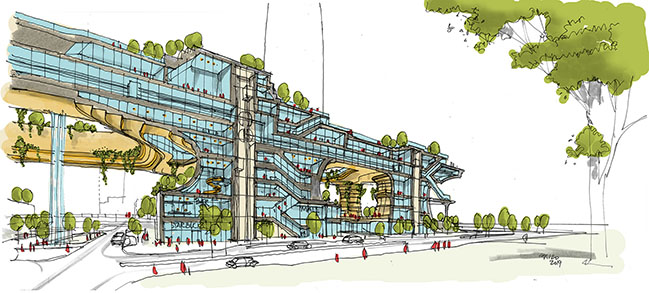

means government by mothers, or more broadly, government and power in the hands of women." Barbara Love and Elizabeth Shanklin wrote, "by 'matriarchy,' we mean a non-alienated society: a society in which women, those who produce the next generation, define motherhood, determine the conditions of motherhood, and determine the environment in which the next generation is reared." According to Cynthia Eller, "'matriarchy' can be thought of . Journalist Margot Adler wrote, "literally, . According to Peoples and Bailey, the view of anthropologist Peggy Reeves Sanday is that matriarchies are not a mirror or inverted form of patriarchies but rather that a matriarchy "emphasizes maternal meanings where 'maternal symbols are linked to social practices influencing the lives of both sexes and where women play a central role in these practices '". The word matriarchy, for a society politically led by females, especially mothers, who also control property, is often interpreted to mean the genderal opposite of patriarchy, but it is not an opposite.
URBAN REALMS MODEL APH HOW TO
According to Heide Göttner-Abendroth, a reluctance to accept the existence of matriarchies might be based on a specific culturally biased notion of how to define matriarchy: because in a patriarchy men rule over women, a matriarchy has frequently been conceptualized as women ruling over men, while she believed that matriarchies are egalitarian. Most academics exclude egalitarian nonpatriarchal systems from matriarchies more strictly defined. Radcliffe-Brown argued in 1924 that the definitions of matriarchy and patriarchy had "logical and empirical failings (.) were too vague to be scientifically useful". A matriarchy is a society in which females, especially mothers, have the central roles of political leadership, moral authority, and control of property, but does not include a society that occasionally is led by a female for nonmatriarchal reasons or an occupation in which females generally predominate without reference to matriarchy, such as prostitution or women's auxiliaries of organizations run by men. In general anthropology, according to William A. Within the academic discipline of cultural anthropology, according to the OED, matriarchy is a "culture or community in which such a system prevails" or a "family, society, organization, etc., dominated by a woman or women" without reference to laws that require women to dominate.

While there are those who may consider any non-patriarchal system to be matriarchal, most academics exclude those systems from matriarchies as strictly defined.ĭefinitions, connotations, and etymology Īccording to the Oxford English Dictionary ( OED), matriarchy is a "form of social organization in which the mother or oldest female is the head of the family, and descent and relationship are reckoned through the female line government or rule by a woman or women." A popular definition, according to James Peoples and Garrick Bailey, is "female dominance". Matriarchies may also be confused with matrilineal, matrilocal, and matrifocal societies. While those definitions apply in general English, definitions specific to anthropology and feminism differ in some respects. In a broader sense it can also extend to moral authority, social privilege and control of property. Matriarchy is a social system in which women hold the primary power positions in roles of authority. Nampeyo, of the Hopi-Tewa People, in 1901 with her mother, White Corn her eldest daughter, Annie Healing and holding her granddaughter, Rachel For other uses, see Matriarch (disambiguation).


 0 kommentar(er)
0 kommentar(er)
